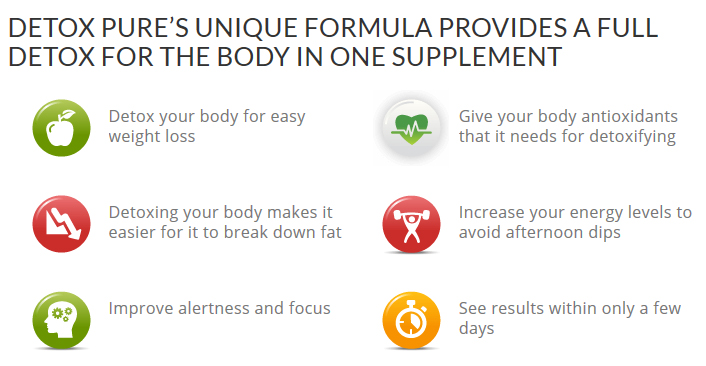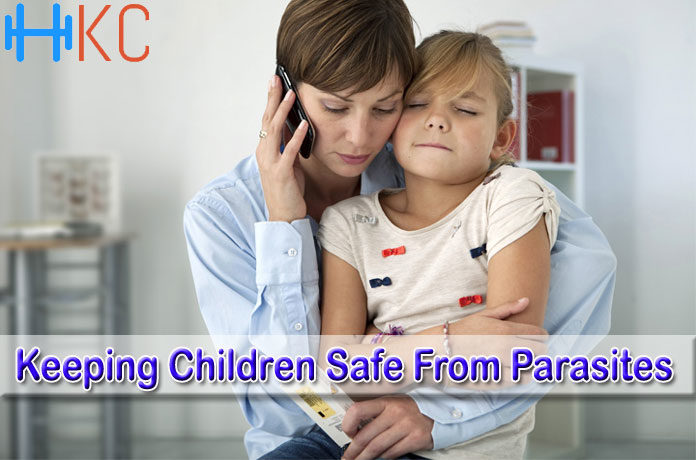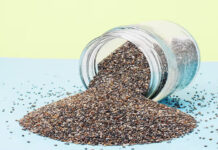Children are the most vulnerable to many parasite-related diseases. Their smaller bodies and still-developing immune systems along with the rough and tumble of childhood can set the stage for an infection from numerous sources and habits. It is paramount that you keep yourself updated with the many scenarios and signs of parasites and arm yourself with the solutions.
At Risk At Every Age
Parasites can find their way into the child’s system at any age – in fact, the younger they are the more serious the implications can be. If your infant or toddler is being taken care of in a daycare center or crèche, contact with other kids and in common areas can lead to infections. Young children also may not be aware of the best practices when it comes to hygiene and they are prone to putting their dirty hands in their mouths – a very widespread reason for infections.
Giardiasis is a disease that causes severe diarrhea and is spread in unhygienic toilets through contact with fecal cells. Preschoolers and kids who go to school tend to contact pinworm infections from infected classmates along with external parasites like head lice.
Playing with pets is a healthy habit as it helps boost the child’s immune system. But in the short term, it also can lead to the transfer of parasites that will cause diseases. Toxoplasmosis is a parasite-caused condition that is associated with cats and infants can also get this disease from their infected mothers.
Children can also get parasites from water-related activities. Common spaces like fountains and pools offer a thriving ecosystem for microbes and parasites and the same goes with places like lakes and streams.
You cannot really stop the interaction that kids have when they play or control how other parents take care of their children but it is very important that you know the signs of an infection when they start becoming visible.
Common Parasite Infection Symptoms In Children
There are certain signs that your child may be afflicted by a case of parasites. As a parent or guardian, you will have to be alert and check the young one’s stool movements. Watery stool or greasy and soft stools can be an indicator of parasites. Is your child not showing the usual energy levels that someone his or her age should have? When children are showing signs of tiredness, this can be an indirect result of a parasite or worm infestation.
Dermatological signs could include scars and itchy spots that manifest on the skin of the child. These can be very unpleasant and spread to a larger area if not attended to immediately.
If the child is complaining of stomach cramps or related abdominal pain – that too can be a sign of parasites. Parasites compete with the body for nutrients. When unattended, the infection can lead to weight loss. It is a sign that you need to take the child to the doctor.
Water And Hygiene
You need to be thorough with the set of best practices to protect kids from parasites. Clean water and basic hygiene can go a long way. It is simple to understand for adults but with children, you need to constantly remind them of good habits.
Do not discount the possibility of your drinking water system being a haven for parasites. Water that is consumed should always be treated, especially when you have very young children in the house. When you are eating out go to reputed places and keep an eye on the serving and cooking conditions. You (and your young ones) can get parasites from something as innocuous as water and ice used for juices and desserts.
Washing hands is a habit that needs to be inculcated in the young ones as soon as possible. They should wash their hands after using the restroom and after a bout of playing outdoors, with other kids, or with pets. And not just a token appearance under a running tap either; Teach the kids to scrub properly with soap and clean the fingernails because that is where a lot of dirt and parasites reside.
Understand The Medication For Parasites
When you take your child to a physician to treat a possible parasite infection, there will be a lot of solutions prescribed. Luckily, modern medicine has found the right combinations to combat parasites and expel or destroy them. However, it is always good to be familiar with the basics of how anti-parasitical products or medicines work.
Anthelmintic is a common term for medicines that are used to treat worm infections specifically. Mebendazole is a popular compound that is prescribed for parasites. Others include Albendazole and Levamisole and are available in different brand names and also depending on the different pharmaceutical parameters that every country has.
Worm medicines act on the parasite directly. Either they create an environment or condition in the worm that prevents it from getting nourishment – in other words, these medicines starve the worm. There are other medicines that cause paralysis in the worms that are found in the gut before they get expelled via feces.
Parasite medicines nowadays work very quickly and effectively. Depending on the type of worm and extent of symptoms, one can treat an infection with a single dose or a series of doses. Some infections can be treated in a few days.
Familiarize yourself with possible side effects when you are giving your child anti-parasitical medicines. Usually, the side effects are very specific to the medicine but common ones include flatulence, cramps in the stomach and nausea. Some medicines also need to be avoided if the patient is pregnant as they may affect the baby.
A lot of deworming and anti-parasite medicines can be bought over the counter. If you are getting a young child treated, do not compromise and indulge in proper research before you administer anything OTC. A prescription from the doctor is always recommended.
A great childhood has its share of dirt and muddy water and scraped knees. Let your kids thrive and enjoy these blissful years and make sure that they stay healthy and strong. Parasites and worms are a part of the challenge but with a firm hand, you can control these pests and their harmful impact on your loved ones.























